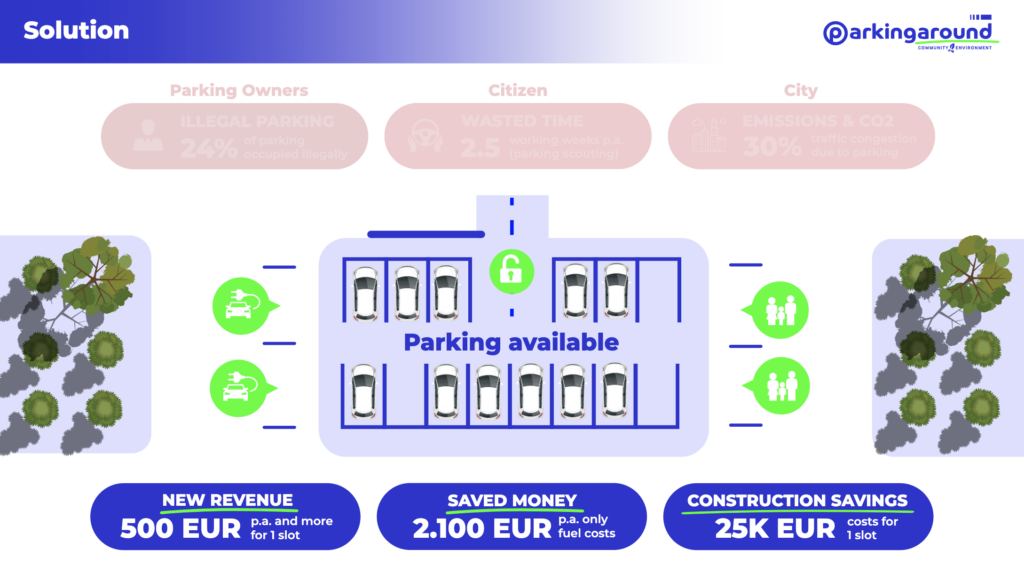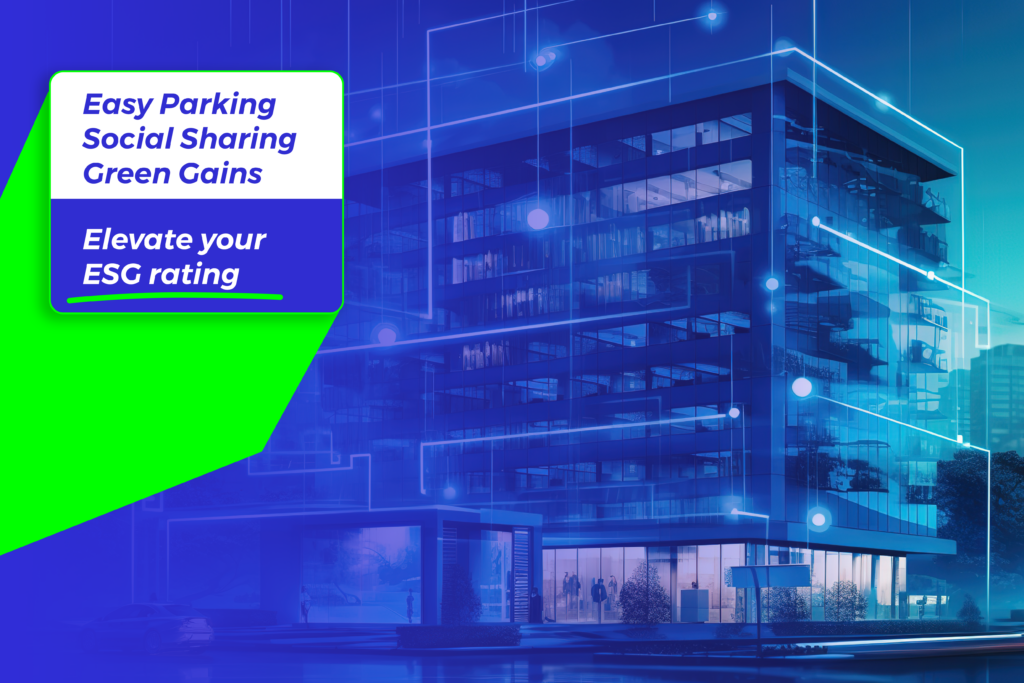The Smart City era brings innovation to improve urban life sustainably. One often overlooked facet is parking, an essential but resource-intensive aspect of urban living. Parking systems that were once synonymous with congestion and pollution are being revolutionized, with forward-thinking property managers at the forefront of change.
Understanding the crucial roles of property managers, facility managers, and real estate brokers is key before exploring smart parking systems. Property managers oversee daily property operations to meet tenant needs efficiently. Facility managers focus on enhancing property functionality, comfort, and sustainability. Real estate brokers advise clients on innovative solutions like smart parking systems. Together, these professionals drive the adoption of smart parking, improving property value, tenant satisfaction, and sustainability. This article explores how smart parking transforms urban spaces for better living, efficiency, and sustainability.
The Parking Paradigm Shift
The very concept of parking management is undergoing a paradigm shift, driven by the pressing challenges in traditional parking systems that affect various stakeholders. Property owners are contending with illegal parking, which occupies 24% of spaces, disrupting revenue and complicating management. Meanwhile, citizens lose an average of 2.5 working weeks per year to parking searches, a significant toll on time and patience. On a larger scale, cities face environmental impacts, with parking-related traffic congestion accounting for 30% of emissions, contributing to pollution and degrading air quality. No longer are passive lots that simply store vehicles acceptable.
Today’s innovative solutions are reshaping these spaces into active environments that not only engage with drivers but also alleviate the issues of illegal parking, wasted time, and excessive emissions. These smart systems are integral to enhancing the urban ecosystem, providing a positive contribution that aligns with the needs of property owners, citizens, and the broader city environment.

One of the main drivers behind this shift is technology. With advancements in IoT sensors, data analytics, and mobile apps, property managers can now monitor parking usage in real time and optimize their resources accordingly.
Smart parking systems collect data on usage patterns, traffic flow, and peak hours, providing valuable insights for property managers to optimize parking policy within the building. This data-driven approach demonstrates a move towards more proactive and engaged parking management strategies that contribute positively to the urban environment as a whole.

Sustainable smart parking is not just about being green—it’s good business sense. For property managers, the investment in these solutions can lead to increased property values, a higher quality of life for tenants, and a competitive edge in a market now favoring sustainability.
Leveraging Smart Parking to Boost ESG Scores
Utilizing smart parking management systems plays a pivotal role in improving a property’s Environmental, Social, and Governance (ESG) scores. By reducing carbon emissions through decreased idle times and optimizing parking space utilization, properties can significantly lower their environmental impact. This not only contributes to a healthier planet but also aligns with the increasing societal demand for sustainable practices. Furthermore, smart parking solutions enhance the user experience, offering convenience and reduced stress for both residents and visitors. This directly impacts the ‘Social’ criterion of ESG by improving quality of life and tenant satisfaction.

On the governance front, adopting such innovative technologies demonstrates a property manager’s commitment to leading-edge sustainability and responsible management practices. It underlines a proactive approach to tackling the urban challenges of pollution and congestion, showcasing a governance structure that prioritizes the well-being of its community and the environment.
By integrating smart parking solutions, properties transition into intelligent buildings that are more efficient, sustainable, and appealing. This transformation not only facilitates a better urban living environment but also positions the property as a leader in the shift towards more sustainable urban ecosystems.
The Road Ahead
However, it’s critical to recognize that true sustainability is not just a checkbox on an amenity list—it must be integrated into all facets of property development.
For property managers, this means adopting a holistic approach that considers environmental, social, and economic aspects. From installing IoT parking sensors to creating charging infrastructures for electric vehicles, the choices made today will define the sustainable buildings of tomorrow.

Need help with adopting smart parking solutions? Get in touch!

Leave a Reply